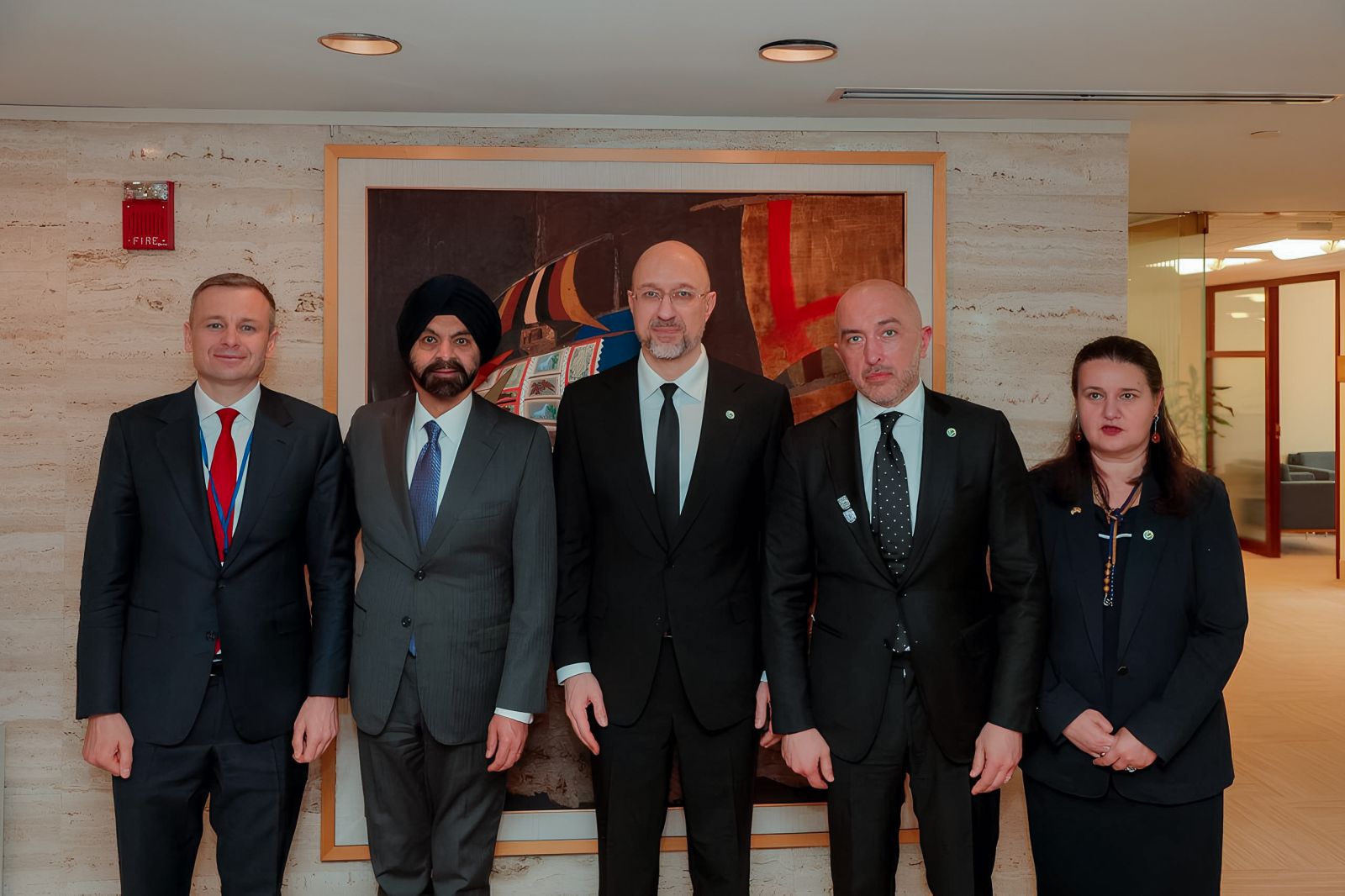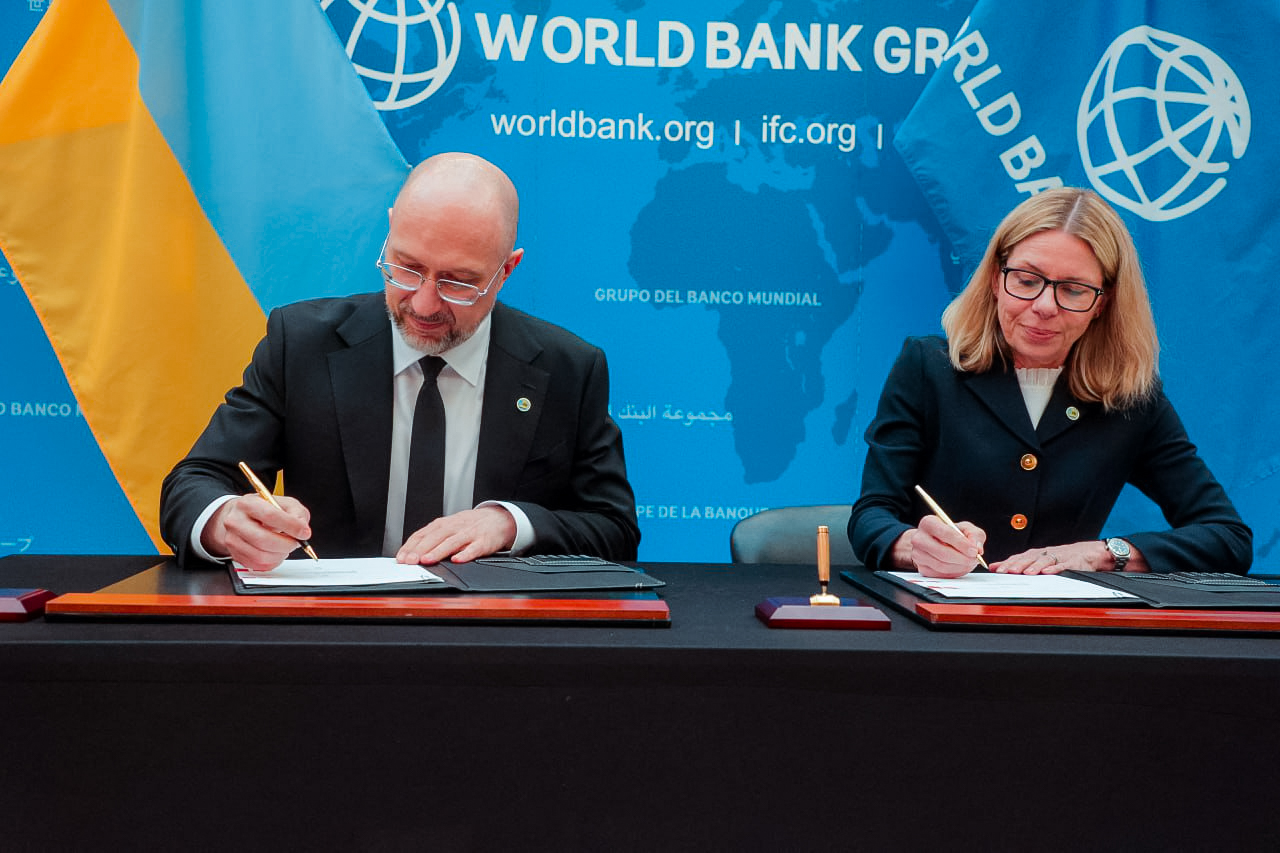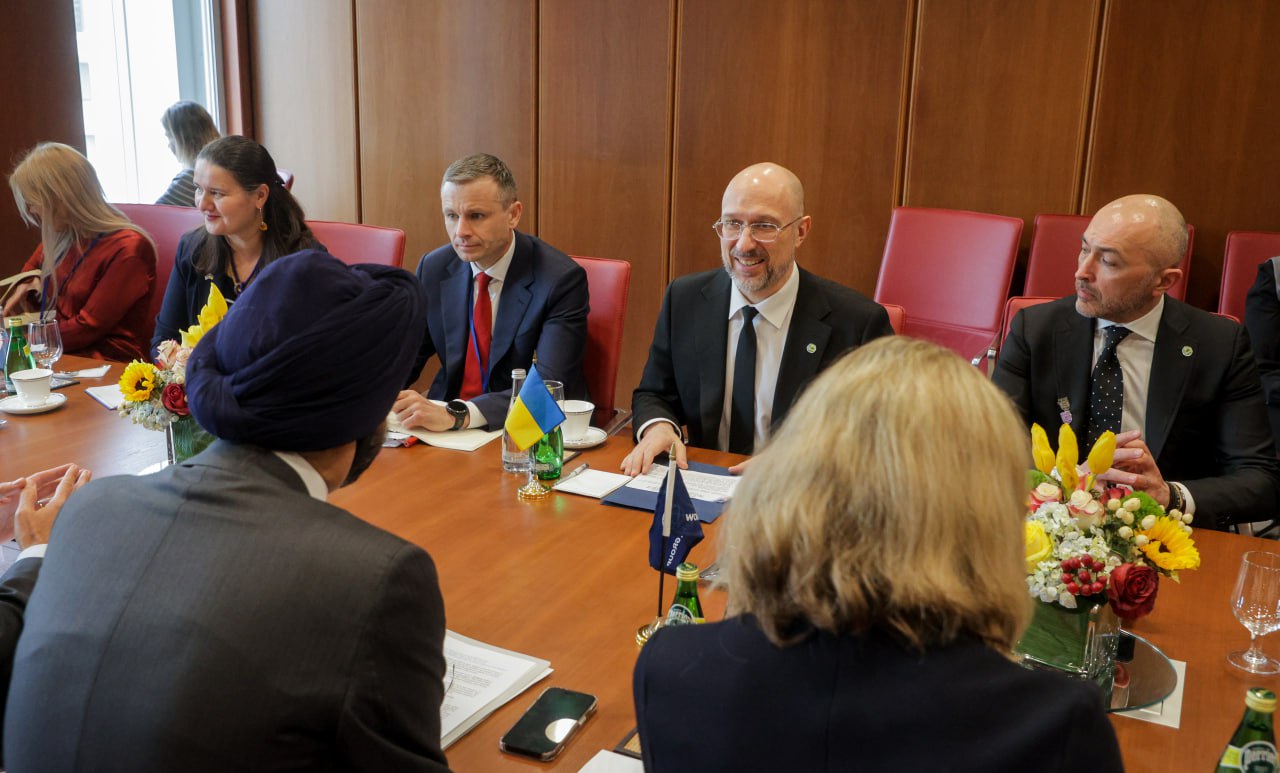Prime Minister of Ukraine and World Bank Managing Director Anna Bjerde signed a $70 million guarantee agreement to boost the resilience of Ukraine’s energy system
-
About Ministry
- Recruitment
-
Accountable agencies
- State Enterprises and Institutions Belonging to the Sphere of Management of the Ministry
- State Service for Financial Monitoring
- State Treasury
- The State Audit Service of Ukraine
- State Tax Service of Ukraine
- State Customs Service of Ukraine
- Personnel Audit Procedures of State Customs Service
- State Tax University
- Minfin Panel
-
Policy Issues
- Budget policy
- Tax Policy
-
Customs Policy
-
Integration of customs legislation into EU law
- Direct and indirect customs representation: possible scenarios for declaring goods and the role of a customs broker
- Customs representative and customs holder: who submits and signs documents
- Confirmation of the reliability of credentials for obtaining authorizations
- Authorization to carry out customs brokerage activities
- Integration of customs IT systems to MASP-C
-
Integration of customs legislation into EU law
-
Accounting and Auditing
-
Accounting
-
Introduction of International Financial Reporting Standards
- Translation of International Financial Reporting Standards 2025 (to be completed)
- Translation of international financial reporting standards of 2024
- Translation of international financial reporting standards of 2023
- Translation of the 2022 International Financial Reporting Standards and the Conceptual Framework for Financial Reporting
- Archive of translations
- Taxonomy
- Translation of technical publications
- General Clarifications (filled in after the preparation of the relevant letters of explanation)
- Accounting in Private Sector
- Accounting in the Public Sector
- Methodological Accounting Council under the Ministry of Finance of Ukraine (download a short description)
- IFRS Council under the Ministry of Finance of Ukraine (download a short description)
-
Introduction of International Financial Reporting Standards
- Auditing
- Sustainability reporting
-
Accounting
-
Debt policy
- Overview
- Debt News
- Debt Statistics
- Domestic Bonds
- Primary Dealers
- Eurobonds
- Credit Rating
- Investor Relations
- DMO Awards
- Financial Policy
- National revenue strategy
-
Financial Monitoring
- Statements and reports of international organizations
- Legislation
- International standards
- Methodological assistance (recommendations and explanations)
- Education, trainings and seminars
- Samples of drawing up a schematic representation of the ownership structure
- List of states (jurisdictions) that do not comply or improperly implement the recommendations of international and intergovernmental organizations involved in the field prevention and counteraction
- List of persons to whom sanctions have been applied
- List of terrorists
- Send a report on violation of the legislation in the field of prevention and counteraction to legalization (laundering) of proceeds from crime, terrorist financing and financing of proliferation of weapons of mass destruction
- Methodology for determining the ultimate beneficial owner by a legal entity
-
International Cooperation
- Partners
-
Cooperation in Attracting Financing from the International Financial Institutions
- Development Bank of the Council of Europe
- Procedure for attracting funds of International Financial Institutions
- World Bank
- EBRD
- EIB
- Deutsche Gesellschaft für Internationale Zusammenarbeit (GIZ) GmbH
- KFW
- Register of Joint IFIs Projects at the Stage of Preparation and Implementation (information)
- International Technical Assistance (within the competence of the Ministry of Finance)
- Monitoring of international technical assistance projects
- Cooperation with the Development Partners
- International Tax Relations
- Development of Public Internal Financial Control (PIFC)
-
Public investment management
- Regulatory documents
- Implementation of the roadmap for reforming the management of public investments
- Unified portfolio of public investment projects (list of priority public investment projects)
- Interdepartmental working group on reforming the public investment management system
- Reference information
-
Other Areas of Public Policy
- Internal Audit
- Audit Committee of the Ministry of Finance of Ukraine
- Scientific and scientific and technical activity
- Reform Support Team at the Ministry of Finance of Ukraine
- Verification of State Social Payments
-
Fiscal Risks Managament
- Clarifications
- Legislation on Fiscal Risks Management
- List of Economic Entities with which Major Fiscal Risks May Be Related
- Reports
- List of business entities to which the Ministry of Finance approves proposals for individual financial indicators for the planning period, as well as proposals for maximum thresholds for the volume of capital investments
- Operations with precious stones and metals
- Licensing
- Public Finance Management Strategy (PFMS)
- Strategic Plan
-
Legislation
-
Regulatory Activity
- Reports on tracking the effectiveness of regulatory acts in 2025.
- Activity plan of the Ministry of Finance of Ukraine for project preparation regulatory acts in 2025
- reports_on_the_effectiveness_of_regulatory_acts_2024
- The activity plan for the preparation of the regulatory acts draft 2024
- Schedule of measures to monitor the effectiveness of regulatory acts 2024
- reports_on_the_effectiveness_of_regulatory_acts_2023
- The activity plan for the preparation of the regulatory acts draft 2022
- Schedule of measures to monitor the effectiveness of regulatory acts 2023
- Reports on the effectiveness of regulatory acts 2022
- The activity plan for the preparation of the regulatory acts draft 2022
- Schedule of measures to monitor the effectiveness of regulatory acts 2022
- Reports on the effectiveness of regulatory acts 2020
- The activity plan for the preparation of the regulatory acts draft 2021
- Schedule of measures to monitor the effectiveness of regulatory acts 2021
- Reports on the effectiveness of regulatory acts 2020
- The activity plan for the preparation of the regulatory acts draft 2020
- Schedule of measures to monitor the effectiveness of regulatory acts 2020
- Reports on the effectiveness of regulatory acts 2019
- The activity plan for the preparation of the regulatory acts draft 2019
- Schedule of measures to monitor the effectiveness of regulatory acts 2019
- Reports on the effectiveness of regulatory acts 2018
- The activity plan for the preparation of the regulatory acts draft 2018
- Schedule of measures to monitor the effectiveness of regulatory acts 2018
- Reports on the effectiveness of regulatory acts 2017
- The activity plan for the preparation of the regulatory acts draft 2017
- Schedule of measures to monitor the effectiveness of regulatory acts 2017
- Reports on the effectiveness of regulatory acts 2016
- The activity plan for the preparation of the regulatory acts draft 2016
- Schedule of measures to monitor the effectiveness of regulatory acts 2016
- Reports on the effectiveness of regulatory acts 2015
- The activity plan for the preparation of the regulatory acts draft 2015
-
Draft Regulatory Acts Discussion
- Draft regulatory acts for discussion in 2025.
- Regulatory acts draft for discussion 2024
- Regulatory acts draft for discussion 2023
- Regulatory acts draft for discussion 2022
- Regulatory acts draft for discussion 2021
- Regulatory acts draft for discussion 2020
- Regulatory acts draft for discussion 2019
- Regulatory acts draft for discussion 2018
- Regulatory acts draft for discussion 2017
- Regulatory acts draft for discussion 2016
- Regulatory acts draft for discussion 2015
- Draft Legislation
-
Regulatory Activity
-
Data
- Cooperation with Civil Society
- Press Center
On Friday, April 25, in Washington, D.C., USA, Ukraine and the International Bank for Reconstruction and Development (part of the World Bank Group) signed a Guarantee Agreement. The document provides for an additional USD 70 million in financing through Climate Investment Funds (CIF) for the project “Ukraine – Energy System Resilience for European Power Grid Integration”.
The loan is issued under a state guarantee of Ukraine and will be directed toward installing hybrid electricity generation systems at PJSC “Ukrhydroenergo.” Specifically, it will be used to purchase solar panels as a backup energy source for the hydropower company.
The signatory on behalf of Ukraine was Prime Minister of Ukraine Denys Shmyhal, and on behalf of the World Bank - Managing Director of Operations Anna Bjerde.
“I am grateful for the World Bank’s commitment to supporting Ukraine during this period of uncertainty and wartime turbulence, as well as for understanding our urgent needs and its determination to develop new assistance programs in response to current challenges. Today’s agreement confirms that — it will contribute to stabilizing Ukraine’s energy sector and bringing it closer to integration into the European power grid,” said Ukraine’s Minister of Finance following the signing.
On the sidelines of the Spring Meetings of the IMF and World Bank Group, Ukraine’s Prime Minister Denys Shmyhal, Minister of Finance Sergii Marchenko, Deputy Minister of Finance Olga Zykova, and Government Commissioner for Public Debt Management Yuriy Butsa met with World Bank Group President Ajay Banga.
The parties discussed the results of Ukraine’s cooperation with the Bank over more than three years of full-scale war and plans for 2025.
Sergii Marchenko thanked Ajay Banga for his consistent and active engagement in supporting Ukraine’s economy and critical sectors and highlighted the Bank’s key role in coordinating international aid.
“Thanks to our cooperation, Ukraine has already received over USD 51 billion in budget support, mobilized through the Bank’s mechanisms from international partners. We highly value this support,” emphasized the Finance Minister during the meeting.
Since the beginning of the full-scale invasion, the World Bank has launched 12 projects in Ukraine aimed at providing emergency support and recovery. These include social support for the population, restoration of energy, transport, and logistics infrastructure, housing repairs, healthcare system reform and medical access, education support, and the recovery of agriculture, small and medium-sized enterprises, as well as customs and tax reform. These projects include PEACE, INSPIRE, Re-PoWER, RELINC, HOPE, HEAL, ARISE, RISE, THRIVE, LEARN, SURGE, and DRIVE.
The parties also reviewed last year’s cooperation results and discussed the status of project preparation and implementation for 2025. Sergii Marchenko stressed that thanks to initiatives by Ukraine and the World Bank, millions of Ukrainians are receiving essential support.
In 2024 alone, 28 agreements were signed, totaling USD 31.8 billion, including USD 22.9 billion in grants.
These funds enabled support for low-income families, internally displaced persons, people with disabilities, and families with children, as well as salary payments for healthcare and education workers, emergency services, and civil servants – all through the PEACE in Ukraine project (USD 26.3 billion in 2024).
Nearly USD 230 million was directed to support agricultural producers through affordable loans and grants. This supported more than 50,000 farms and 40,000 smallholders, and enabled 10,000 farmers to access financing (ARISE project).
Under the HOPE project, compensation was provided for minor and medium repairs to partially damaged homes for nearly 85,000 households.
Under the Re-PoWER project, USD 47 million in contracts were signed for the supply of key heating equipment to the city of Kharkiv — including 13 modular boiler houses, 15 cogeneration units, and 10 generators.


